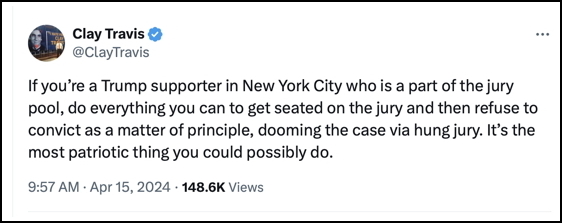Spongebob Squarepants Really Hurts Kids Ability To Think? Study Says Yes
A circumspect University of Virginia study claims that children’s cartoon Spongebob Squarepants is damaging to a young child’s brain development, and that a PBS cartoon, or just drawing, have a less-damaging effect. The study took 60 four-year olds and had them watch nine minutes of a Spongebob Squarepants cartoon, then immediately tested them and concluded that the children exposed to Spongebob could not concentrate or focus as well as the other children not exposed to the sponge who lives in the sea in a pineapple.
Ignore if you will for a moment that Spongebob Squarepants has become the Tinky-Winky of the 21st century, accused of pushing both “the homosexual agenda,” and the “global warming agenda.” (Mr. Squarepants evidently is a very busy fellow.)
The study itself is flawed because, as the folks at Nickelodeon note, Spongebob Squarepants is created for children 6-11 years old, and “Having 60 non-diverse kids, who are not part of the show’s targeted demo, watch 9 minutes of programming is questionable methodology. It could not possibly provide the basis for any valid findings that parents could trust.”
Aso, the students were reportedly not tested before they watched the cartoons, so the researchers did not establish a baseline.
But let’s not let facts get in the way of promoting the anti-gay Christian agenda!
CNN reports:
The pre-schoolers who watched the fast-paced shows did much worse on the thinking tests than those in the two other groups, who scored about the same. The researchers suspect that the brain gets overtaxed or tired from all of the stimulation from the fast-paced cartoons leading to lower scores.
But what this means for children long term is still an open question. Several other studies have found a link between heavy television viewing and problems with children’s attention spans, especially in young children, while others have not. Some researchers are concerned, however, because the ability to concentrate and not get distracted often shapes how well children do in school. Preschoolers watch at least 90 minutes of TV a day, according to the study, but other researchers estimate young kids watch between two and five hours of TV daily.
And ABC News adds:
“From what we know about children’s neurodevelopment, the early years are truly formative. The concern is that TV is unnatural; it happens at a speed that’s unachievable in the real world. Our brains didn’t evolve to process things that happen at this surreal speed, so it becomes exhausting to kids’ brains,” says Dr. Dimitri Christakis, director of the center for Child Health, Behavior and Development at Seattle Children’s Hospital. Christakis wrote a commentary on the study, also published on Monday.
Those on the other side of the debate argue that all this multi-tasking is preparing kids for the internet-driven world they will inherit, teaching them how to inherently juggle media in the way that many in the working world today have had to train themselves to do.
Sadly, the study does not seem to be available online, and only one of the study’s creators was listed at University of Virginia website, and did not immediately respond to our questions, so, we really can’t find out more. Also, I’d like to know why the two other groups of children, the group who watched PBS, and the group who drew, weren’t explored more? Perhaps this is a great learning for PBS supporters?

Enjoy this piece?
… then let us make a small request. The New Civil Rights Movement depends on readers like you to meet our ongoing expenses and continue producing quality progressive journalism. Three Silicon Valley giants consume 70 percent of all online advertising dollars, so we need your help to continue doing what we do.
NCRM is independent. You won’t find mainstream media bias here. From unflinching coverage of religious extremism, to spotlighting efforts to roll back our rights, NCRM continues to speak truth to power. America needs independent voices like NCRM to be sure no one is forgotten.
Every reader contribution, whatever the amount, makes a tremendous difference. Help ensure NCRM remains independent long into the future. Support progressive journalism with a one-time contribution to NCRM, or click here to become a subscriber. Thank you. Click here to donate by check.
 |













